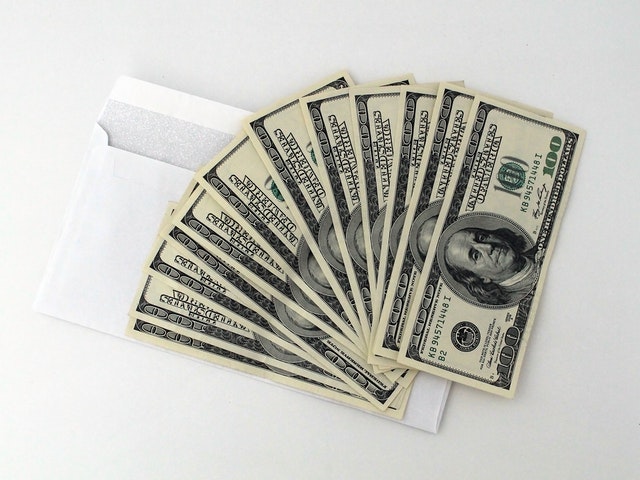pandemic, fears arose not only due to this deadly virus but because of the negative financial impact the virus has had on the economy. Without a solid base of business operations, citizens are fearful of losing their homes, jobs, and the ability to feed the family. Because of the need for money, federal, state, and local governments are urgently providing stimulus money and are implementing regulations to keep the economy afloat.
The federal government has aggressively pursued providing payments to those who have qualified for this stimulus outflow. Electronic payments have been provided in the first stage of direct deposits into each taxpayer’s primary bank, one who has filed a federal tax return within the past two tax years. According to Steven Mnuchin, United States Secretary of the Treasury, the Internal Revenue Service (IRS) already has the banking information based upon those who have filed returns and received a refund by direct deposit, just show how the government received your banking information.
What is the reason for some not receiving their stimulus check?
1. There is no bank information on record with the IRS.
Those who did not provide the banking information on the tax return will receive a paper check. As a remedy, the Federal Deposit Insurance Corporation (FDIC) is promoting the immediate filing of any current or outstanding tax returns with the addition of providing your banking information so that these stimulus funds can get to you without delay.
Many taxpayers had not filed tax returns or did not provide their banking information when they last filed. Immediately file any outstanding tax returns and add your banking information so that these funds can get to you quickly.
After submitting the return, allow sufficient processing time that will result in triggering your stimulus funds directly deposited to you.
2. The money went to a closed bank account.
If you have switched bank accounts since you filed your most recent tax returns, it may have been that the funds were inadvertently sent. To correct this, you can immediately submit the current return by:
• Providing new banking information.
• Filing an amended return to include the banking information.
• Or be patient and wait on the paper check to arrive in the mail.
Even though the funds went to the wrong bank, you still qualify for the stimulus funds.
3. Your income exceeds the financial threshold for a refund.
There are specific income thresholds that are in place that will prevent the funding from reaching you. According to the Coronavirus Aid, Relief and Economic Security Act (CARES Act), the $1200 funds are available for those:
• Single taxpayers who earn less than $75,000 per year.
• Married taxpayers who gross less than $150,000 per year.
If your income exceeds these thresholds, a formula reduces the $1200 by $5 per $100 over the limit. As a result, if a single earner earns over $99,000 or a married couple earns more than $198,000, your income disqualifies you for receiving any stimulus funding under the CARES Act.
4. The stimulus funds were sent to a tax preparation service.
Tax-preparation companies are popular, especially during the tax filing season. Due to their convenience by being set up in high traffic locations such as grocery stores and malls, countless middle class to lower-income individuals set aside a few minutes to allow these tax preparers to complete their return quickly. Most of the taxpayers who use these services receive refunds.
As a result, the tax preparation service has separate banking information set aside in which the Internal Revenue Service credits the wrong bank in the amount due for the taxpayer. A separate routing and separate account number are needed to allow them to deduct any outstanding fees associated with the services rendered in the assistance of the preparation of the return.
With the stimulus payment going to bank accounts associated with the most current return available, these payments are deposited in error. Hence, this delays the receipt of the stimulus funds much to the aggravation of the recipient. Procedures are in place to correct these errors, with one of the solutions being to mail a paper check to the last known address on the last filed tax document.
5. Identity theft
What is of great concern nowadays identity theft. And once there is a national announcement on funds sent out to mass society, identity thieves begin their plots as to how to go about illegally securing individuals checks. Consequently, identity thieves diligently work day and night. They are always researching ways to manipulate the system to get your check.
Unfortunately, the negative desires of thieves outweigh the goodness that comes from the targets for such activities. While everybody is aware that identity theft takes place, thieves misdirect your stimulus payment to unauthorized accounts set up with your personal information.
Swiftly contact the Internal Revenue Service if you have yet to receive your stimulus funds to find out the status of the delay. Do not be surprised if identity theft is the reason why. If this happens to you, ask the representative about the proper steps to take to rectify the situation.
6. Outstanding debt
If the Internal Revenue Service is alerted of any outstanding debts, then these funds will go directly to qualifying debts such as student loans, child support, and state taxes. Although it may appear as though the stimulus disbursement is sent straight to you, some priority debts need addressing first. Unfortunately, these outstanding debts will receive your stimulus payments. If there is an error, quickly contact the debt collector and reconcile the concern. If the results are in your favor, then your funds should be redirected to you, although by mail instead of direct deposit.
Conclusion
Stimulus checks are a great need all across America. Funds are needed for basic necessities and to quell the concerns of finance companies who hold titles to mortgages, cars, and more. If you are one of those whose payments have been delayed, proactively address “the why.






